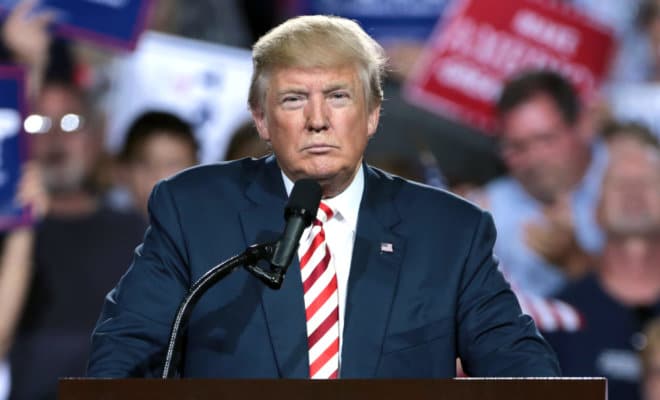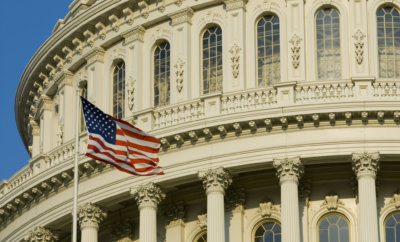Immigration
Judge Blocks Trump Administration From Ending Some Immigrant Protections

Donald Trump
Photo: Wikimedia Commons
The injunction was another instance of a judge using President Donald Trump’s own words on immigration against him.
A federal judge in San Francisco blocked the Trump administration from ending special protections for immigrants from four countries devastated by war and natural disaster, temporarily relieving more than 300,000 people from the threat of deportation.
Immigrants from El Salvador, Haiti, Nicaragua and Sudan — some of whom have spent two decades in the United States — cheered Wednesday’s decision to retain the program, which was signed into law in 1990 by President George Bush. The program includes more than 263,000 Salvadorans, almost 59,000 Haitians, more than 5,000 Nicaraguans and more than 1,000 Sudanese, according to the court.
The judge, Edward Chen, did not rule on the merits of the case. But in the injunction, he said the beneficiaries, if deported, “indisputably will suffer irreparable harm and great hardship,” many having to choose between bringing their U.S.-born children with them or splitting their families apart.
The injunction was another instance of a judge using President Donald Trump’s own words on immigration against him. Chen cited comments in the president’s speeches and Twitter posts as evidence of an “animus against nonwhite, non-European immigrants.” He wrote that there was “circumstantial evidence of race being a motivating factor.”
The administration, committed to reining in both legal and illegal immigration, says that the program has turned into a quasi-permanent benefit and that the countries no longer face the hardships they did when protection was granted. The government rescinded the status for Bosnia and Herzegovina after a civil war in the 1990s, and for Guinea, Sierra Leone and Liberia after the Ebola crisis in 2014.
The court’s decision is likely to be appealed. Devin O’Malley, a Department of Justice spokesman, said the ruling “usurps the role of the executive branch in our constitutional order.”
“The Justice Department completely rejects the notion that the White House or the Department of Homeland Security did anything improper,” he said in a statement. “We will continue to fight for the integrity of our immigration laws and our national security.”
In Los Angeles, home to the country’s largest Salvadoran population, news of the decision spread quickly.
Veronica Lagunas, mother of two American children, said the judge’s decision restored hope and a sense of security to her family.
“For us, wow, this is an important victory,” said Lagunas, who works overnight cleaning offices. “It gives us more time to keep fighting.”
Just as with the legal proceedings over the administration’s efforts to impose a ban on travel to the United States from several predominantly Muslim countries, Trump appears to have undermined his case with his inflammatory comments. The court cited several examples, including his campaign announcement speech in 2015 in which he criticized Mexican immigrants and his call later that year for “a total and complete shutdown of Muslims entering the United States.”
In one meeting, he used vulgar language to ask why the United States had to allow immigrants from certain countries.
Civil rights groups lauded the injunction.
“This ruling is a victory against the unlawful — not to mention cruel — dismantling of a program that protected hundreds of thousands of U.S.-citizen children from an impossible choice of leaving their parents or their country,” Ahilan Arulanantham, senior counsel at the American Civil Liberties Union of Southern California and a lawyer for the plaintiffs, said in a statement.
Miriam Jordan contributed reporting from Los Angeles.
c.2018 New York Times News Service



